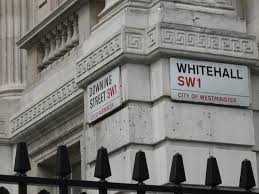15 July 2021
Fundamental Change
Redesigning government.
By Robert Kilconner
Blink and you could miss it. Close your eyes for a second and it could pass you by. But, hardly heard against the noise of the public debate about Brexit, Covid, carbon levels and levelling up, there is another discussion going on which is perhaps more important to the UK than the issues which are consuming the media. More to the point, it is upstream of those issues as it bears on the prospects for resolving them satisfactorily. The truth is that, as demonstrated by the messy efforts to obtain protective gear for health professionals, the machinery of central government does not deliver as we would wish and has not done so for many years. Prime minister after prime minister has complained about it with comments about pulling levers that had no effect or, in the case of Mr Johnson, finding oneself in the equivalent of a nightmare world where the will impels the feet to move but there is no way of making them do so.
Much of this debate has been going on for years but it seems to have taken on a new lease of life. In June the Prime Minister and the Cabinet Secretary signed a “Declaration on Government Reform”, a blissfully short document specifying 30 actions which would be taken in 2021, broken down under the headings “people”, “performance” and “partnership”. The “people” actions included the movement of 22,000 civil servants out of London by 2030, changes to their recruitment, secondments, etcetera, more flexibility of movement between the civil service and the private sector, incentive pay, better training for ministers and civil servants, and better monitoring of performance. Under “performance” there would be far more use of digital systems and data as well as measures to improve the quality of government contracting. The “partnership” recommendations include bringing civil servants into Cabinet Committee and various forms of review.
“Good ideas but so what?” you might think. True, the declaration had the backing of Michael Gove, the Government’s reformer-in-chief, but how would it find airtime when all attention was riveted on such urgent matters as pandemic management, trade agreements, climate change and levelling up? Surely, even with the best will in the world, it would gradually slip into Sir Humphrey’s bottom drawer.
Perhaps, but for all that the debate does seem to be moving forward with involvement from Policy Exchange, the Institute of Government and others. Now a new cross-party report from the charity ‘The Commission for Smarter Government’ is seeking to put some flesh on the official bones, pointing at the gap between political ambitions and outcomes and stressing the need for a more strategic and joined-up approach under which the current independence of ministries would be replaced by a structure under which the Prime Minister becomes akin to a chief executive, asserting control through a Prime Minister’s Office and a Treasury Board (ignoring the proposed Secretary of State for Public Service Effectiveness on the grounds that it sounds too Gilbert and Sullivan to actually happen). Budgeting would be centralised in a ‘Plan for Government’ and lower down in the structure a network of cross-departmental ministerial boards would be responsible for specific remits. For example, a net zero board might draw on DEFRA, BEIS, DfT and others.
Many of the other recommendations are designed to underpin this structure, with the suggestion that 10 Downing Street lose its office function to a government building where the various ministerial offices can be brought together under a single roof. Non-parliamentary ministerial appointments are also on the list, although it must be doubtful how they can be made sufficiently accountable. A Crown Headhunter would improve the level of talent dentistry, oops no, density.
It is not the purpose of this article to go through the cookie jar sweet by sweet but rather to make a more general point. Clearly something needs doing. It seems something may well be done. If the government wishes to win our gratitude for a real public service it will put a lot of thought into doing it well. As for you, well, watch this space.


